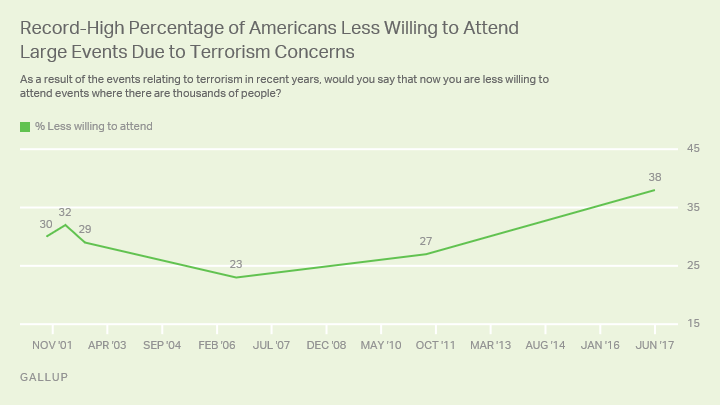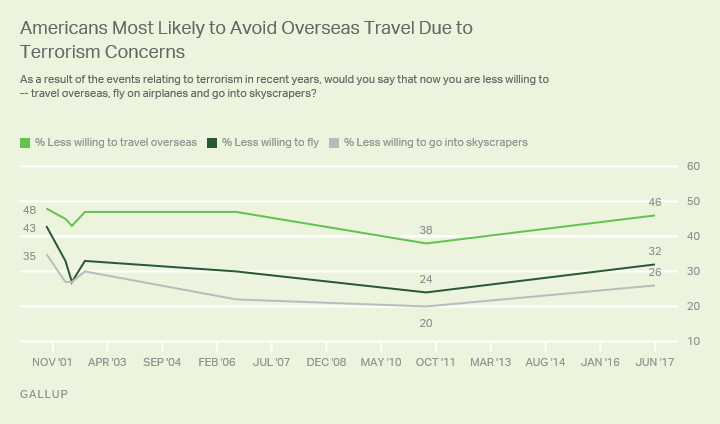Via Gallup:
STORY HIGHLIGHTS
- 38% of Americans less willing to attend large events due to terrorism
- Previous high was 32% in 2002
- 46% less willing to travel overseas due to terrorism concerns
WASHINGTON, D.C. — Thirty-eight percent of U.S. adults say the threat of terrorism makes them less willing to attend events where there are thousands of people. This is up from 27% in July 2011, the last time Gallup asked the question. It is also the highest level recorded since Gallup began asking the question after 9/11.
These most recent data come from Gallup’s latest survey conducted June 7-11.
The record-high percentage of Americans avoiding large events comes on the heels of the May 22 terrorist attack on concertgoers in Manchester, England, and the June 3 attack at a crowded bridge and restaurants in London.
Immediately after 9/11, 30% of Americans expressed reluctance to attend crowded events. That level of concern persisted throughout the first year after those attacks but dipped in polls conducted five years and 10 years later — to 23% and 27%, respectively. But with the recent events in England fresh in people’s minds, concern about attending crowded events is at a new high. Memories of other terrorist attacks on U.S. soil, including the 2013 Boston Marathon bombing and the 2016 shooting at the crowded Pulse nightclub in Orlando, Florida, also may be increasing Americans’ fears.
Since 9/11, Gallup periodically has asked Americans about their willingness to venture into four public situations in light of concerns that they may have about terrorism. In addition to attending events where there are thousands of people, the situations are traveling overseas, flying on airplanes and going into skyscrapers.
Americans’ reluctance to participate in the last three activities is not at a record high, but it is heightened compared with Gallup’s measures in 2011.
- Forty-six percent of U.S. adults say they are less willing to travel overseas, up eight percentage points since 2011.
- Nearly a third (32%) say they are less willing to fly on an airplane, up from 24% in July 2011.
- Twenty-six percent say they are less willing to go into skyscrapers as a result of events relating to terrorism in recent years; this is the highest percentage recorded since September 2002.
It is unclear to what extent Americans’ reluctance to engage in these activities is influenced by their likelihood of doing them in the first place. For example, although 48% say they are less likely to travel overseas, the number of Americans who were actually planning to do so to begin with is unknown. Thus, these results may overstate how many people actually have modified their behavior because of terrorism concerns.

